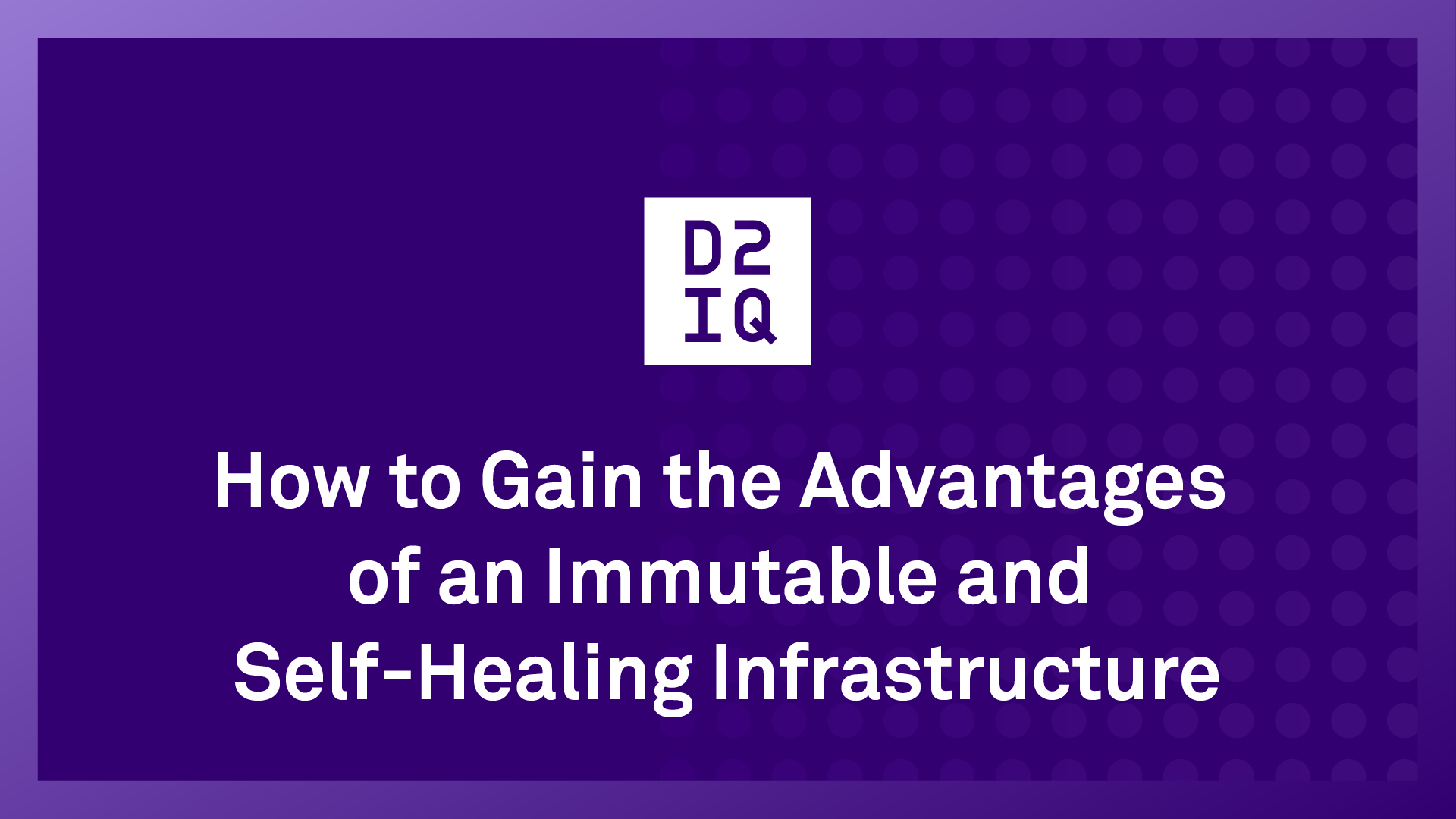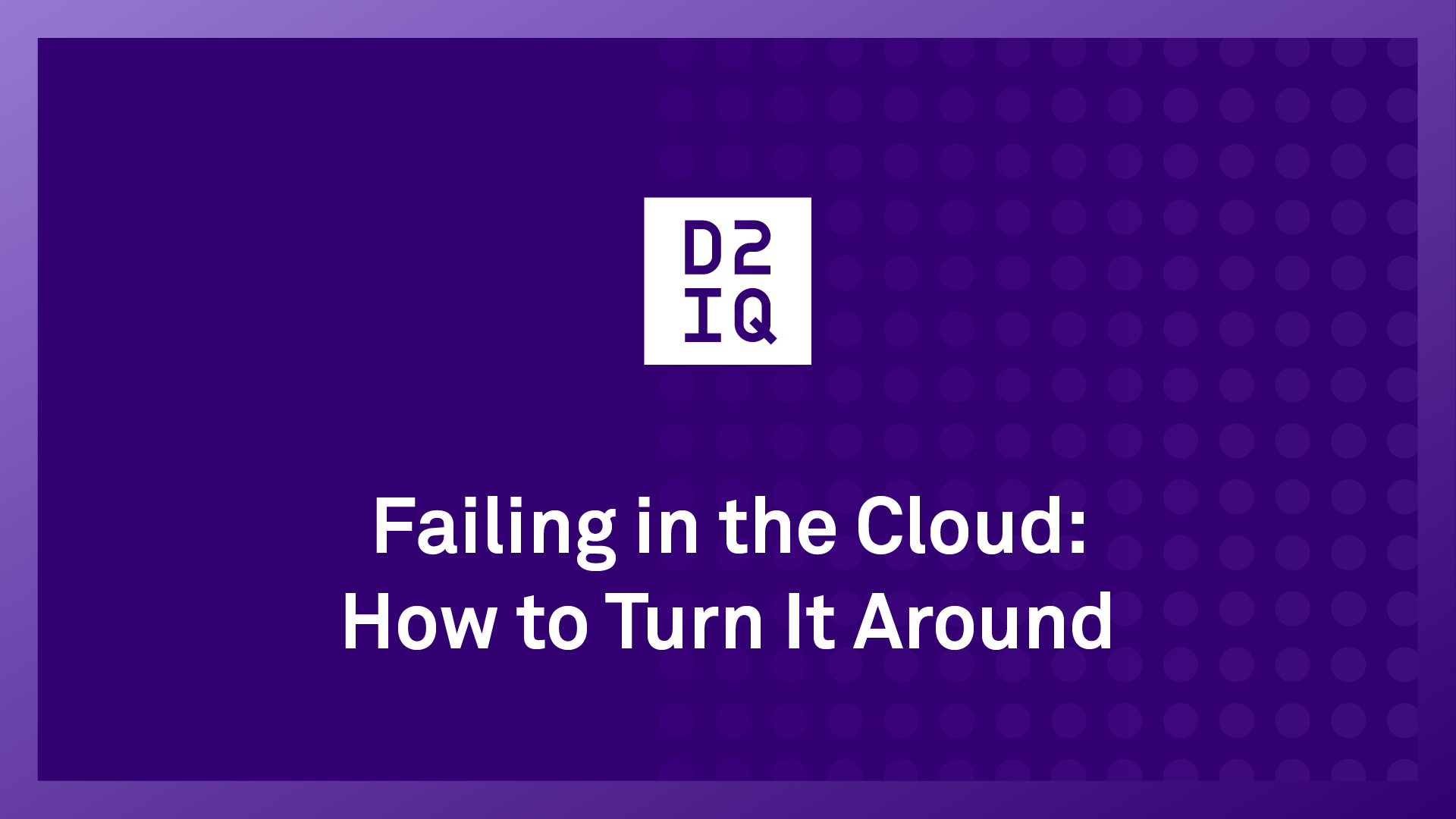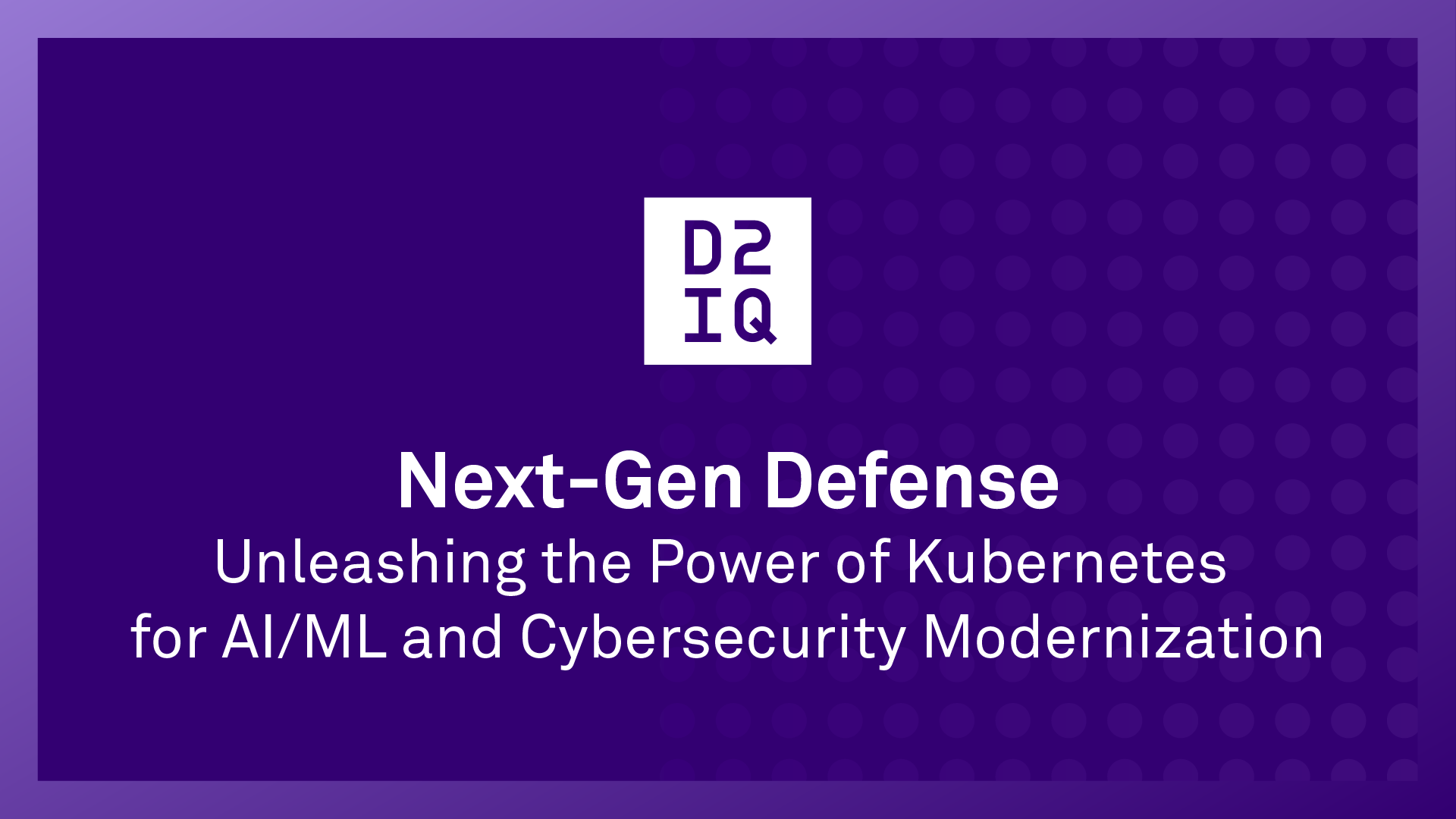How to Gain the Advantages of an Immutable and Self-Healing Infrastructure

5 min read
Among the benefits D2iQ customers gain by deploying the D2iQ Kubernetes Platform (DKP) is an immutable and self-healing Kubernetes infrastructure. The benefits include greater reliability, uptime, and security, reduced complexity, and easier Kubernetes cluster management.
The key to gaining these capabilities is Cluster API (CAPI). DKP uses CAPI to provision and manage Kubernetes clusters, which imposes an immutable deployment model and enables state reconciliation for Kubernetes clusters.
Through CAPI, all cluster nodes are immutable. This means that once they are created, they are never updated, only deleted. CAPI handles changes to machines by replacing them with updated versions.
CAPI enables state reconciliation for Kubernetes clusters by constantly monitoring state through a controller. If a change is detected, the controller moves to restore the state to the defined configuration. Self-healing is achieved using non-proprietary open-source technology.
Eliminate Configuration Drift
By controlling the configuration and self-recovery processes, CAPI restricts the potential for configuration drift. Through proactive conflict resolution and automated healing, problems are avoided rather than detected.
This type of robust configuration management reduces unexpected events and increases uptime. By managing the infrastructure in this way, a customer’s security posture is improved, and operational complexity is reduced. Imposing standardization and consistency for versioning and rollback makes it easier to manage fleets of clusters.
Avoid Common Pitfalls
For DIY and vendor-proprietary Kubernetes solutions that lack the automation advantages of declarative APIs, DevOps and platform engineering teams must devote considerably more time and labor to configuring and maintaining their Kubernetes infrastructure manually.
A feature-complete, production-ready Kubernetes management platform like DKP, which is controlled by CAPI from top to bottom, eliminates the need for manual configuration and maintenance. Through automation and an integrated set of platform applications that are tested and secure by default, DKP eases and standardizes the management of Kubernetes–in effect, providing instant platform engineering.
In do-it-yourself (DIY) installations, in the Kubernetes offerings of leading cloud service providers (Amazon EKS, Microsoft AKS, Google GKS), and in other Kubernetes platform scenarios, DevOps teams must spend time selecting, deploying, integrating, securing, and managing Kubernetes add-ons. This includes add-ons for ingress, logging, monitoring, networking, security, storage, load balancing, policy management, observability, and more, with no overarching policy governing the installation and integration of the add-ons.
DIY and vendor-proprietary Kubernetes platforms that lack drift detection technologies limit portability and require manual intervention to remediate configuration drift. Without automated self-healing, teams must spend time manually monitoring and restoring cluster nodes in the event of failures, which means longer downtime and lower availability.
Clear Advantages of Declarative APIs
A Kubernetes platform that incorporates declarative APIs enables you to define and build a Kubernetes cluster while simultaneously provisioning the underlying infrastructure in a just-in-time manner. No separate workflow for infrastructure provisioning and maintenance is required.
A feature-complete Kubernetes management platform architected around CAPI gives you inherent advantages of immutable and self-healing Kubernetes clusters, along with greater elasticity, security, and portability.
The combination of CAPI and Flux gives you an exponentially greater capability to reduce the complexity of Kubernetes management, increase productivity, and gain agility. Individually, each of these capabilities can have a positive impact on your business. Combined, they can create a major competitive advantage. The return on investment yields real value, including significant and measurable cost savings.
Learn more about the business case for CAPI and the fleet management advantages of CAPI.
Speak with a D2iQ Kubernetes expert to learn how you can gain the advantages of a feature-complete Kubernetes platform architected around Cluster API.









